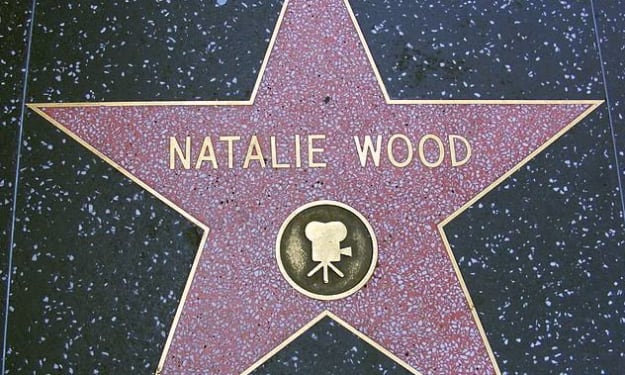Freedom is NOT Free!
As told by a fighter in the 60's Civil Rights Movement

Freedom is not Free.
As told by a fighter in the 60’s Civil Rights Movement
Freedom is not free. Many decades ago, I sat my seventeen-year-old body in the streets in front of my college campus. Praying that the moving cars would indeed halt and not crush my young body, I knew I was fighting for freedom. I also knew that there was a risk I had to take to gain this freedom.
Juneteenth is a momentous event for Black Americans because it marked the implementation of the Emancipation Proclamation made in 1863 when two thousand Union troops arrived in Galveston Bay, Texas. The army announced that 250,000 enslaved black people were free by an executive decree. Juneteenth is an important part of American history. Black people have been fighting for freedom all their lives. it didn't begin with Juneteenth. It didn't begin with the American Revolution. It didn't begin with the Boston Tea Party. Most significantly, the fight is still being waged. A lot of people believe that the 4th of July is inconsequential because Black people were not considered free then. That may be the case for some, but we cannot discard the sacrifices of the lives of important Black people during history. These were Black people who dedicated their lives and some even lost their lives to fight for freedom. They were fighting on both sides of the conflict of the American Revolution. Some Black Americans fought on the fire of the British. Some of the Americans fought on the side of the Patriots. The Black Patriots fought on the side of the Americans and the Black Loyalists fought on the side of the British. The goal was to attain freedom. Whoever could provide their freedom was of utmost importance.
In my research of the participation of Blacks during the American Revolution, I consulted the website www.history.com. Crispus Attucks what's considered the first man to die for the rebellion. He became a symbol a black American patriotism and sacrifice. During the Boston massacre, this slave man of African and Native American descent played an active role in the initial scuffle. Another important patriotic soldier was Salem Poor. He began his life as a Massachusetts slave but ended it as an American hero. After he purchased his own freedom, he joined the fight for independence. His heroism occurs during the battle of Bunker Hill where he is credited with killing British Lieutenant Colonel James Abercrombie, along with several other enemy soldiers. Another important leader in the Revolutionary War was Colonel Tye. He fought on the side of the British and many patriots feared his raids. During his raids, he helped many slaves in their liberation. Tye helped the Redcoats take supplies, free slaves, because he was familiar with the area. The British recognized his impact and bestowed him title of Colonel.
The first Rhode Island regiment was the First Continental Army unit largely made up of Black New Englanders. George Washington was forced to reconsider his original decision to ban Black people from the continental army because of dwindling manpower in the late 1770s. So, in 1778 Rhode Island legislation or declared that both free and enslaved Black people could serve. period to attract enslaved inflamed Black people, the patriots promised freedom at the end of service. Another hero during the revolution was James Armistead. His life changed when he started out as an enslaved person in Virginia to become a double agent passing Intel and misinformation between the patriots and the British. He pretended to be a runaway slave wanting to serve the crown and was welcomed by the British with open arms because he knew the local terrain. They gave him more important details. He pushed incorrect information for the continental army and learned details of the British battle plans. Then he brought back the information to his commander, General Marquis de Lafayette. Because of his efforts, the Americans patriots got the inside info they needed to execute the Siege of Yorktown which effectively ended the war. Another Black American who fought and died heroically was not a man. A Creole woman who fought during the American Revolution was Sally St. Clair. Sally enlisted in South Carolina as a man. She enlisted so that she could stay with her man also a revolutionary soldier. Legend has it that she died protecting him.
One of the most important heroines during the revolution was the ‘Poet Patriot’ Phillis Wheatley who waged war for freedom with her words. In 1773, Wheatley became the first African black American and third woman to publish a book of poetry in America. An influential columnist read Wheatley’s Pond and praised her talents. Her work carried strong messages against slavery and became a rallying cry for abolitionist Remember: “Christians, knee grows, black, may be refined and join th angelic train”. She advocated for independence expressing support for George Washington’s Revolutionary War in her point quote to His Excellency General Washington. All these men and woman seeking freedom during the American Revolution should not be discounted in the fight for freedom.
So, I believe that it is right to honor both July 4th and June 19th as significant historical events in the lives of American Black people. We are too Americans. If you think that one event makes you freer, you are sadly mistaken. The Emancipation Proclamation and the President’s declaration to make Juneteenth a government holiday are additional puzzle pieces of history which acknowledge and encourage our fight for the prize of freedom. Freedom is not free, and it unfortunately, has still not been attained by all Americans. We won’t give up. Historically, Americans never do.






Comments
There are no comments for this story
Be the first to respond and start the conversation.